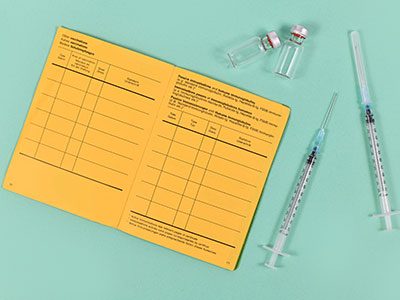I keep hearing in the news about how terrible this flu season is and how many children are falling severely ill – even though they had gotten the flu shot. Is there anything I can do to protect my child and myself? And how do I know if I should take my child to the emergency department?
This is a great question, as it has indeed been a difficult flu season. First, if you haven’t already, be sure that everyone in your family has gotten the flu shot. Even if the protection isn’t perfect, it is still the best way to prevent serious illness from the flu. And, ensuring that everyone in the house who is able has been immunized (even the adults!) helps to decrease the chance of someone bringing the virus home.
Other important ways to prevent illness are to get lots of rest, eat healthy and drink lots of fluids. A healthy, well rested body is better able to fight off infection. Wash your hands regularly, and don’t go to work or send your kids to school if they are sick.
If your child does get sick, first and foremost, follow your gut and don’t hesitate to call or bring your child into their doctor to be seen if you are concerned. Most pediatric practices have an on-call line so you can discuss with a professional if you aren’t sure what to do, or are trying to decide if you can wait until your regular doctor’s office is open.
Specific signs or symptoms to look out for are a change in behavior (such as being very drowsy or inconsolably fussy), persistent fevers, decreased urine output and/or very dry mouth (which could indicate dehydration) or difficulty breathing (such as very fast breathing or difficulty catching your breath).
Again, if there is any concern, don’t hesitate to call or bring your child in – that is what we are there for!
 https://riseandshine.childrensnational.org/wp-content/uploads/2020/11/person-being-vaccinated-feature.png
300
400
Rise and Shine
https://riseandshine.childrensnational.org/wp-content/uploads/2017/11/childrens_riseandshine_logo.jpg
Rise and Shine2025-05-15 07:00:242025-05-23 10:39:33Answers to your questions about the COVID-19 vaccine and booster for children
https://riseandshine.childrensnational.org/wp-content/uploads/2020/11/person-being-vaccinated-feature.png
300
400
Rise and Shine
https://riseandshine.childrensnational.org/wp-content/uploads/2017/11/childrens_riseandshine_logo.jpg
Rise and Shine2025-05-15 07:00:242025-05-23 10:39:33Answers to your questions about the COVID-19 vaccine and booster for children














Leave a Comment
Want to join the discussion?Feel free to contribute!